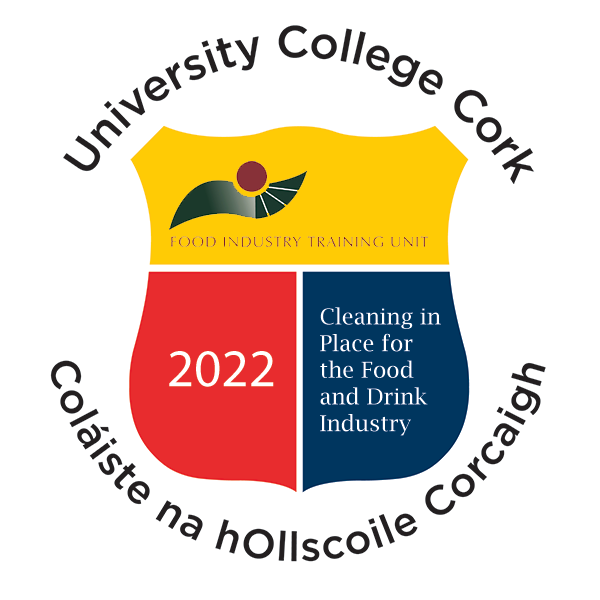
The next iteration of this course will run on the 3rd and 10th of February 2026 (note this is an online course, delivered live).
Please reach out to our Training and Learning Manager, Vicky Snook, if you would like would like an in-company delivery.
Who should attend?
This course is designed for those in Operations, Technical staff, Project Managers, Quality control and Assurance hygienists, R&D and NPD staff and other relevant personnel who operate and manage dairy and food processing plants. This course would be also useful for staff who work in plant optimisation or are planning new investments in plant and hygiene equipment.
What will you learn on this course?
Day 1 - Cleaning In Place
Safety and environmental aspects of CIP
- What are the 4 T’s?
- How each of the T’s affect the outcome of your CIP
- Mechanical action (turbulence)
- Chemical force (turbidity/titration)
- Time
- Temperature
- Technology
CIP Delivery Systems
- Components of a CIP system
- The CIP station
- Single and multiple delivery systems
- CIP system safety
- Control and data acquisition systems
- Water quality and its effects on CIP
- Verification and validation
- Post-CIP testing (chemical/microbiological)
Detergents
- Detergents and acids
- Concentrations and the effect on a successful CIP
- Base caustics and acids vs blended chemicals
- In-line measurement of concentration/temperature
- Environmental considerations
Common Issues With CIP Systems
- What constitutes a successful CIP
- What should I look for during CIP to ensure success
- Preventative maintenance items that affect CIP systems
- How can I optimise a CIP system to increase plant availability
- How can I save money and time on my current system
- Capital investment justifications
- What are the problems that I have experienced
Day 2- Cleaning in Place
What is Clean?
- Prerequisites for successful cleaning /requirements.
- Factors influencing cleaning.
- The importance of a fully functional and verifiable CIP.
Review of Cip systems, Water, and chemicals.
- Safety and environmental aspects of CIP.
- Different Cip systems and the 4 T’s?
- How each of the 4T’s affect the outcome of your CIP.
- Chemicals and Water.
- Common issues with CIP
CIP Verification – Is your plant doing what it was designed to do?
- Is your plant fit for purpose?
- What are you measuring and how do you report it?
- Determine if your plant is compliant – producing objective evidence.
- Are you audit ready?
CIP plant optimisation
- What have you got – Programmed versus reality.
- Water – The low hanging fruit!
- Chemicals and temperature
- The role of the chemical company and data usage.
CIP system Validation – cleaning the worst-case scenario!
- What is validation, why do we do it, removing the complexity.
- When should it be performed: At the beginning or at the end?
- Validation prerequisites
- Cleaning validation protocol
- Cleaning validation process
- Cleaning validation report
- Maintaining the validated state
Post Validation and summary
- Verification and monitoring
- Repeat frequency.
- Change management.
- Lessons learned.
Digital Badge Award

Upon successful completion of the Cleaning in Place for the Food & Drink Industry course, you will be awarded a digital badge which can be used to support your CV and e-portfolio. A digital badge is an award which recognises your accomplishment in completing an unaccredited course and is referred to as a micro-credential. By taking part in the in-course activities and successfully completing the in-course questions you will qualify for a digital badge. The badge can be downloaded and included on CVs, shared via email or included on your e-portfolio (for example on LinkedIn). When a person or employer clicks on your digital badge they will see the specific details of the course, the process by which the course was given and if the course was successfully completed. Digital badges can be used to illustrate continued professional development and can supplement existing qualifications.
Biographical Sketches of Trainers
Nial Mullane is a UCC graduate of Dairy Science and has 35 years’ experience across several blue-chip companies in both the UK and Ireland in soft drinks manufacture with Coca Cola, Aseptic packaging of juices, milk, and sauces with Tetra Pak and both liquid UHT and powdered infant formula manufacture with Wyeth Nutrition. He has held project management, validation, and senior operation management roles in these companies. Nial has been a CIP champion for many years and frequently lectures in University College Cork, and is a Director of Northstar Training and Advisory.
John Creedon has over 33 years’ experience in the Irish Food and Drinks industry in brewing, dairy spreads, milk powders, confectionary, and infant formula. Having graduated from UCC with a BSc (Food Business) and later from TU Dublin with a MSc (Environmental Health Risk Management), he has worked in various quality, manufacturing, operational excellence, and training roles with Heineken, Glanbia, Danone, Pfizer, and Wyeth (now Nestle). He is currently responsible for training and learning including the development of subject matter experts in areas such as wet processing, drying, cleaning in place, filling, and packaging of infant formula across the five dimensions of safety, environment, quality, operational and financial performance.
Course Fee
The course fee for this 2-day programme is €800 - partial funding may be available through Taste4 Success Skillnet for eligible participants.
To Register
To register for this course, please click here.
For further details of the course please contact:
Vicky Snook
Training and Learning Manager for foodlineUCC
Food Industry Training Unit
School of Food and Nutritional Sciences College of Science,
Engineering and Food Science,
University College Cork
email: vicky.snook@ucc.ie
